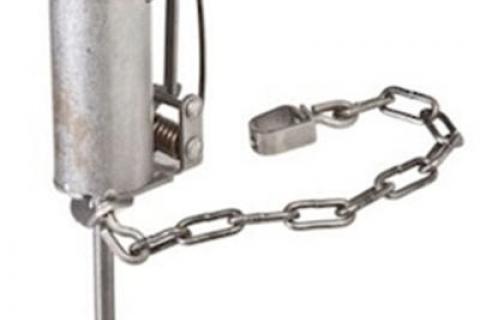
 Animal trapping or using snares Is done for many reasons such as food, fur, pest control, pet trade, zoological specimens or wildlife management. Knowing how to construct simple snares or use the proper trapping supplies will make your next trapping adventure a successful one.
Animal trapping or using snares Is done for many reasons such as food, fur, pest control, pet trade, zoological specimens or wildlife management. Knowing how to construct simple snares or use the proper trapping supplies will make your next trapping adventure a successful one.
The sport of trapping is not a dangerous one, but that doesn’t mean hunters don’t need to observe certain safety rules to protect themselves. Stay safe while trapping by following these tips, with guidelines compiled from the Michigan Hunter Safety Course and the North Carolina Wildlife Resources Commission:
- Know your body’s limits and respect them. When the more strenuous activities of trapping become too much, take a break or call it a day.
- Dress appropriately. Wear clothes that make you easily identifiable to hunters. Additionally, dress for the weather with layers of moisture-wicking fabrics and wool garments topped with rain gear, keeping yourself dry enough and warm enough to stave off hypothermia and frostbite while trapping in the winter. If you begin to shiver or feel numbness, recognize that these are the first signs of hypothermia and frostbite; move inside of a shelter, drink a warm beverage, add layers of clothing or build a fire to warm yourself.
- In warmer weather, be sure to defend yourself from sun exposure and diseases such as West Nile and Lyme by wearing sunscreen and deep-woods insect repellent, and checking for and removing ticks.
- Exercise extreme caution when setting traps. Keep fingers away from the jaw area of the gear.
- Protect yourself from dangers posed by the animals you trap. When using a restraining trap, guard yourself from bites or scratches by using a catch pole if you’re releasing the animal, or by keeping a safe distance if you are going to dispatch the animal with a firearm.
- When handling animal carcasses, use disposable safety gloves and protective goggles to avoid contact with parasites and diseases. When you’re through, carefully clean all materials you used while handling the carcasses with a bleach solution. Wash your hands and arms thoroughly with antibacterial soap.
- In case of an emergency -- an animal bite, a trap accident, hypothermia -- see a healthcare provider immediately.
Finally, become familiar with all the rules and regulations of trapping in your area and make sure you have the right trapping supplies and gear with you.
- 5132 views

